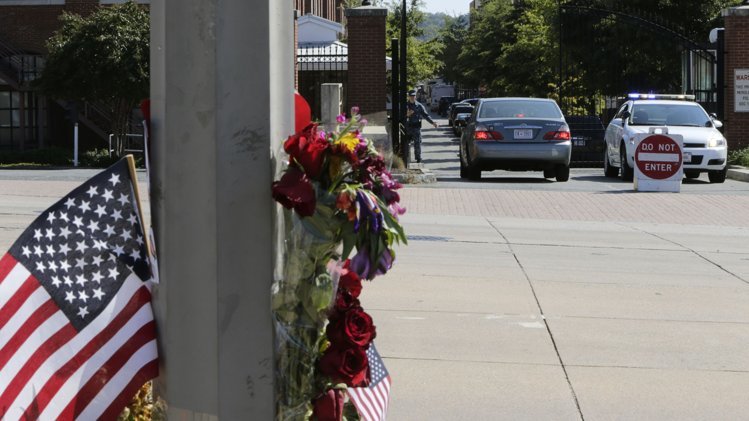
Dear Dr. Hurd:
I work in the Washington Navy Yard, the scene of the recent shooting.
I understand the reasons why I’m physically feeling the way I am (sleeping poorly, eyes scratchy, throat feels like I’m holding back tears, chest also feels tight).
People are encouraging me to talk to a counselor, but I’m not sure I need to. If I understand the causes of my emotions, and I’m not beating myself up over them, shouldn’t I just relax and let the process happen?
Dr. Hurd’s reply:
Let’s look at it from the perspective of those telling you to talk to a counselor. They know you have been through a hair-raising event, a highly publicized one at that. Most likely they’re thinking something like, ‘I don’t know what to say to her. I don’t know how to help. I’ll tell her to contact a professional.’
I recently met with a new client who said to me, ‘Thank you. This session helped. I didn’t know if it would, because I thought to myself, ‘How is this person going to understand my situation?’ But you apparently do.’ He’s a reader of my Life’s a Beach column, and he likes my writings and perspectives. But he still wondered if counseling could help, because he didn’t know anything personal about the person whose help he was seeking. Seeking ‘help’ from a stranger is counter-intuitive, and those of us who advocate counseling sometimes forget that.
I get this, and it’s possibly what you’re talking about in your question. ‘Why should some counselor help me just because ‘ he’s a counselor?’ People talk about counseling as if it’s a self-evident given that a professional can help you, just because he’s a professional. But that doesn’t mean he’ll understand your situation; or even that you want him to understand.
Maybe you simply want to be left alone, for now. Animals sometimes lick their wounds on their own. It’s sometimes the best way to heal. It’s a mistake to automatically and always assume that ‘just talking’ will help you feel better.
At the same time, it’s a mistake to automatically assume that refusing to talk to anyone about your recent, highly upsetting experience will be worthwhile, either.
There’s nothing wrong with experimenting. Obviously you’re unsure. Otherwise, you would not be asking me for my input. You might try carefully selecting a counselor whose work, writings, ideas or philosophy squares with your own. Try and see if it helps. It won’t likely hurt, not if you carefully select.
The basic issue here is: Does talking about a problem always help? It doesn’t always help, at least not right away. It annoys me that people take that as a self-evident given.
I frequently ask reluctant clients to weigh the pros and cons of talking about their problem with me before pursuing the therapy itself. It’s important to own and take responsibility for the decision, so you don’t pursue counseling ‘just because.’
Experts on grief, loss, and trauma will all tell you that not everyone responds in the same way. Don’t try to respond any particular way. Instead, try to recognize that you’re having a response. Try to figure out what that emotional response actually is. Pay attention to it, that’s all. There’s no precedent for anything like this in your life, I’m sure. Write down your emotions, and reflect on them. Understand what you’re going through.
And most of all, let yourself go through it. The wisest advice I ever heard from a grieving person was, “Feel everything you need to feel. Every last bit of it.”
If this is what you mean by ‘relax, and let the process happen,’ then I vote for that. Stay honest with yourself, and self-aware. That’s what matters the most.
Be sure to “friend” Dr. Hurd on Facebook. Search under “Michael Hurd” (Rehoboth Beach DE). Get up-to-the-minute postings, recommended articles and links, and engage in back-and-forth discussion with Dr. Hurd on topics of interest.
